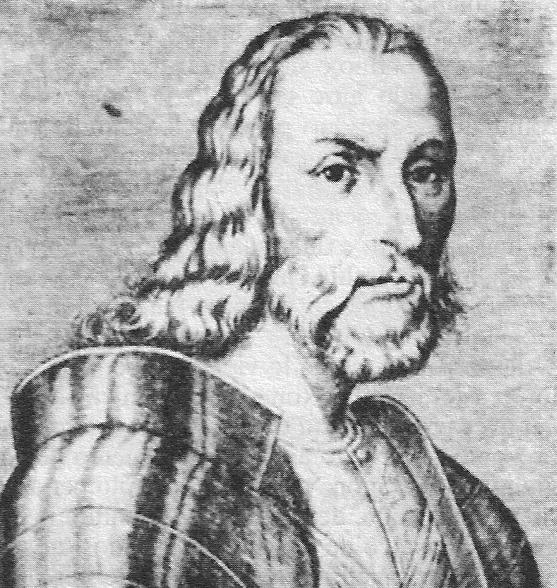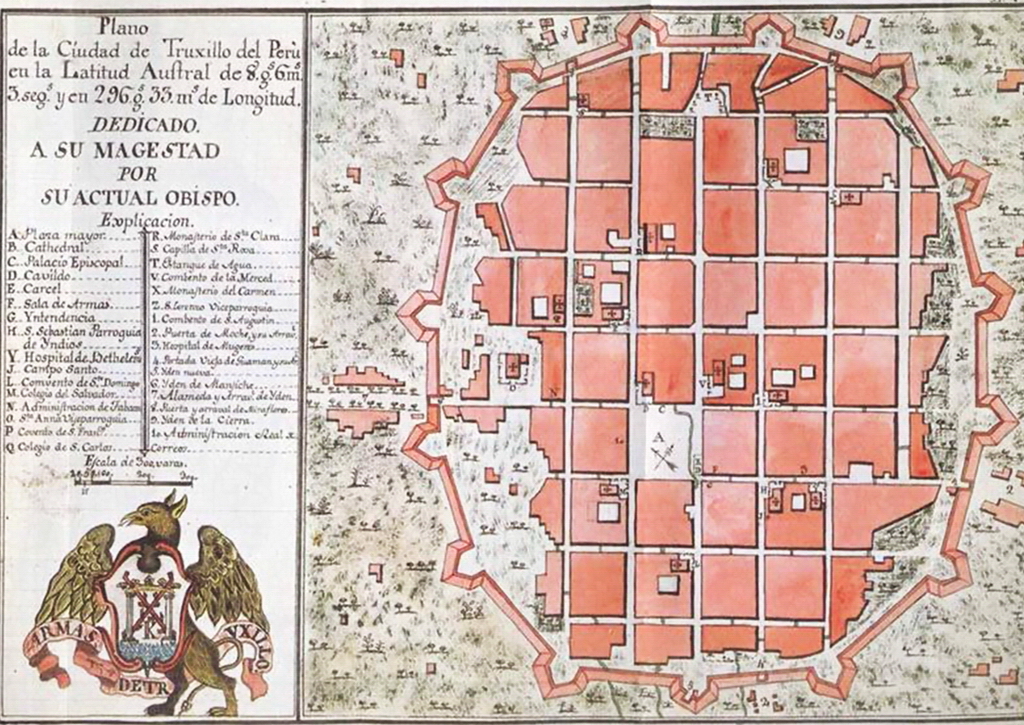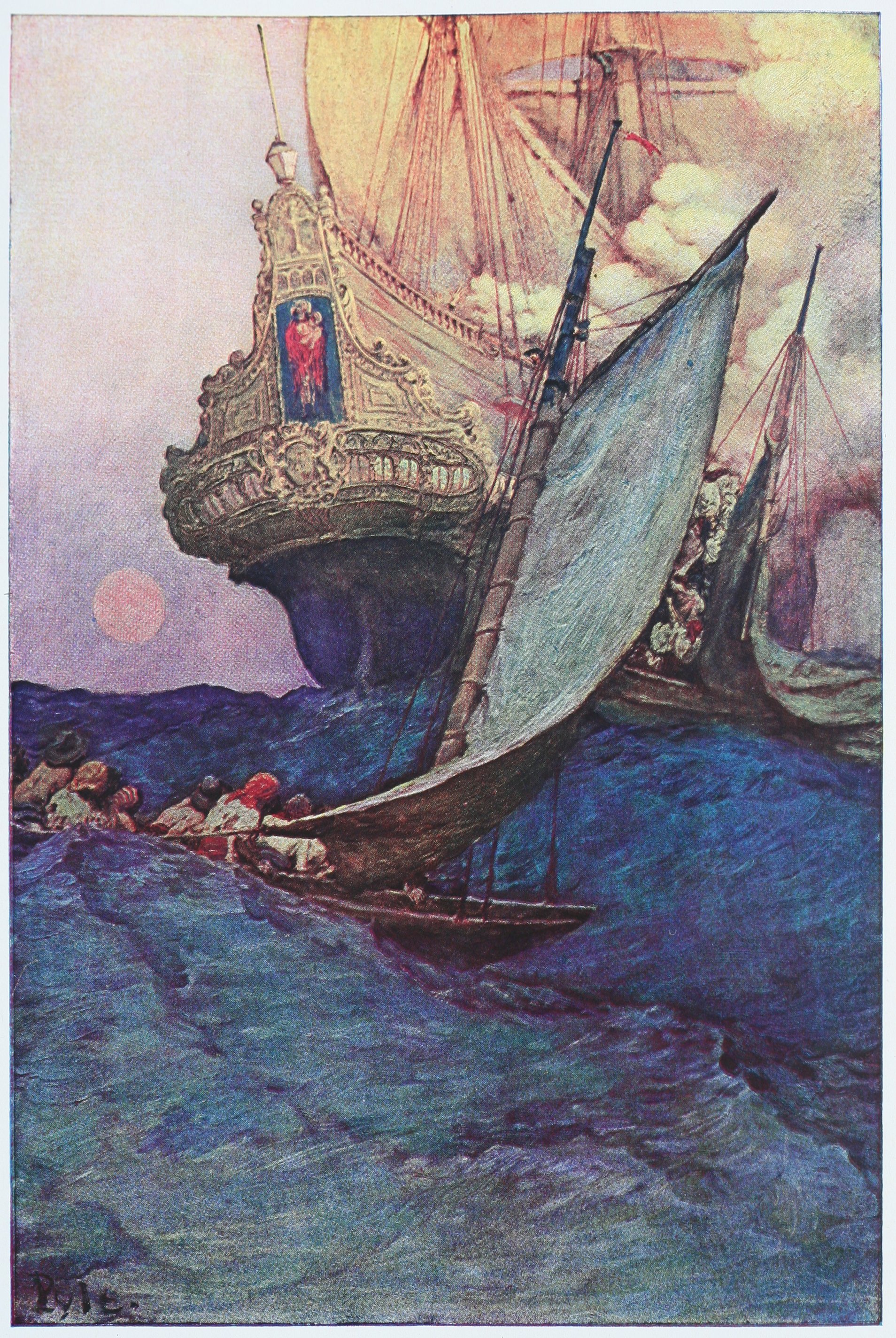|
Trujillo, Venezuela
Trujillo is the capital city of Trujillo State in Venezuela. About 40,000 people live in this city, located in El Valle de Los Mukas. History Founded by one of the "Conquistadores de America", Diego García de Paredes (1506–1563), Diego García de Paredes (1506–1563), son of Diego García de Paredes (the father), (1466–1534), Spanish soldier and duellist, native of Trujillo, Cáceres, Trujillo in Extremadura, Spain. In 1678, Trujillo was the farthest point in a daring raid on Spanish-held Venezuela, carried out by six pirate ships and 700 men led by the French buccaneer Michel de Grammont. Simon Bolívar promulgated the Decree of War to the Death in the city on 15 June 1813. Notable People *Yoel Daboín (born 2004) - footballer Twin cities * Trujillo, Peru, Trujillo, La Libertad (Peru) * Trujillo, Honduras, Trujillo (Honduras) * Trujillo, Cáceres (Spain) References Cities in Trujillo (state) Populated places established in 1557 1557 establishments in the Sp ... [...More Info...] [...Related Items...] OR: [Wikipedia] [Google] [Baidu] |
Countries Of The World
The following is a list providing an overview of sovereign states around the world with information on their status and recognition of their sovereignty. The 205 listed states can be divided into three categories based on membership within the United Nations System: 193 member states of the United Nations, UN member states, two United Nations General Assembly observers#Current non-member observers, UN General Assembly non-member observer states, and ten other states. The ''sovereignty dispute'' column indicates states having undisputed sovereignty (188 states, of which there are 187 UN member states and one UN General Assembly non-member observer state), states having disputed sovereignty (15 states, of which there are six UN member states, one UN General Assembly non-member observer state, and eight de facto states), and states having a political status of the Cook Islands and Niue, special political status (two states, both in associated state, free association with New ... [...More Info...] [...Related Items...] OR: [Wikipedia] [Google] [Baidu] |
Diego García De Paredes (1506–1563)
Diego García de Paredes (1468–1533) was a Spanish soldier, mercenary and duelist. He played a distinguished role in the Spanish armies during the Italian Wars, the Mediterranean conflicts against the Ottoman Empire, and the early wars of Emperor Charles V. Known as the "Extremaduran Samson" and the "Spanish Hercules", he was celebrated by his great strength, battle feats and long history of duels, eventually becoming a figure of legend in the Spanish and Italian armies. Early life He was born in Trujillo, Extremadura, which lies between Badajoz and Madrid. It produced many of the most noted ''conquistadores'' of America, including the Pizarro family. Information is scarce about his upbringing, but he it is known he learned to read and write and was trained in military arts by his father, in which he proved so strong and talented that he routinely defeated all of his training partners. He might have served as a teenager in the Granada War, but either way, the conquest of the l ... [...More Info...] [...Related Items...] OR: [Wikipedia] [Google] [Baidu] |
Populated Places Established In 1557
Population is a set of humans or other organisms in a given region or area. Governments conduct a census to quantify the resident population size within a given jurisdiction. The term is also applied to non-human animals, microorganisms, and plants, and has specific uses within such fields as ecology and genetics. Etymology The word ''population'' is derived from the Late Latin ''populatio'' (a people, a multitude), which itself is derived from the Latin word ''populus'' (a people). Use of the term Social sciences In sociology and population geography, population refers to a group of human beings with some predefined feature in common, such as location, race, ethnicity, nationality, or religion. Ecology In ecology, a population is a group of organisms of the same species which inhabit the same geographical area and are capable of interbreeding. The area of a sexual population is the area where interbreeding is possible between any opposite-sex pair within the area ... [...More Info...] [...Related Items...] OR: [Wikipedia] [Google] [Baidu] |
Cities In Trujillo (state)
A city is a human settlement of a substantial size. The term "city" has different meanings around the world and in some places the settlement can be very small. Even where the term is limited to larger settlements, there is no universally agreed definition of the lower boundary for their size. In a narrower sense, a city can be defined as a permanent and densely populated place with administratively defined boundaries whose members work primarily on non-agricultural tasks. Cities generally have extensive systems for housing, transportation, sanitation, utilities, land use, production of goods, and communication. Their density facilitates interaction between people, government organizations, and businesses, sometimes benefiting different parties in the process, such as improving the efficiency of goods and service distribution. Historically, city dwellers have been a small proportion of humanity overall, but following two centuries of unprecedented and rapid urbanization, more ... [...More Info...] [...Related Items...] OR: [Wikipedia] [Google] [Baidu] |
Trujillo, Honduras
Trujillo is a city, with a population of 22,750 (2023 calculation), and a municipality on the northern Caribbean coast of the Honduran department of Colón, of which the city is the capital. The municipality had a population of about 30,000 (2003). The city is located on a bluff overlooking the Bay of Trujillo. Behind the city rise two prominent mountains, Mount Capiro and Mount Calentura. Three Garifuna fishing villages—Santa Fe, San Antonio, and Guadelupe—are located along the beach. Trujillo has received plenty of attention as the potential site of a proposed Honduran charter city project, according to an idea originally advocated by American economist Paul Romer. Often referred to as a ''Hong Kong in Honduras'', and advocated by among others the Trujillo-born Honduran president Porfirio Lobo Sosa, the project has also been met with skepticism and controversy, especially due to its supposed disregard for the local Garifuna culture. History Christopher Columbus land ... [...More Info...] [...Related Items...] OR: [Wikipedia] [Google] [Baidu] |
Trujillo, Peru
Trujillo (; ; Mochica language, Mochica: ''Cɥimor'') is a city in coastal northwestern Peru and the capital of the Department of La Libertad. It is the third most populous city and center of the List of metropolitan areas of Peru, third most populous metropolitan area of Peru. It is located on the banks of the Moche River, near its mouth at the Pacific Ocean, in the Moche Valley. This was a site of the great prehistoric Moche (culture), Moche and Chimu cultures before the Inca conquest and subsequent expansion. The Independence of Trujillo from Spain was proclaimed in the Historic Centre of Trujillo on December 29, 1820, and the city was honored in 1822 by the Congress of the Republic of Peru with the title "Meritorious City and Faithful to the Fatherland", for its role in the fight for Peruvian independence. Trujillo is the birthplace of Peru's judiciary. In 1823, Riva Agüero settled in Trujillo after being deposed, but his government lacked legal recognition, while the Cong ... [...More Info...] [...Related Items...] OR: [Wikipedia] [Google] [Baidu] |
Decree Of War To The Death
The Decree of War to the Death, in Spanish ''Decreto de Guerra a Muerte'', was a decree issued by the South American leader Simón Bolívar which permitted murder and any atrocities whatsoever to be committed against civilians born in Spain, other than those actively assisting South American independence, and furthermore exonerated people from the Americas who had already committed such murders and atrocities. The phrase "war to the death" was used as a euphemism for these atrocities. The decree was an explicit "war of extermination" in Bolívar's attempt to maintain Venezuelan independence in the war with Spain, since he felt that the Spanish Army's use of atrocities against those who supported the First Republic of Venezuela had contributed decisively to its defeat.Arana, M. (2013). ''Bolivar''. New York: Simon & Schuster, Bolívar promulgated the decree on June 15, 1813, in the Venezuelan city of Trujillo. Background The decree states that it was created as a response to se ... [...More Info...] [...Related Items...] OR: [Wikipedia] [Google] [Baidu] |
Simon Bolívar
Simon may refer to: People * Simon (given name), including a list of people and fictional characters with the given name Simon * Simon (surname), including a list of people with the surname Simon * Eugène Simon, French naturalist and the genus authority ''Simon'' * Tribe of Simeon, one of the twelve tribes of Israel Places * Şimon (), a village in Bran Commune, Braşov County, Romania * Șimon, a right tributary of the river Turcu in Romania Arts, entertainment, and media Films * ''Simon'' (1980 film), starring Alan Arkin * ''Simon'' (2004 film), Dutch drama directed by Eddy Terstall * ''Simón'' (2018 film), Venezuelan short film directed by Diego Vicentini * ''Simón'' (2023 film), Venezuelan feature film directed by Diego Vicentini Games * ''Simon'' (game), a popular computer game * Simon Says, children's game Literature * ''Simon'' (Sutcliff novel), a children's historical novel written by Rosemary Sutcliff * Simon (Sand novel), an 1835 novel by George Sand * ' ... [...More Info...] [...Related Items...] OR: [Wikipedia] [Google] [Baidu] |
Michel De Grammont
Michel de Grammont ( 1645 – 1686?) was a French privateer. He was born in Paris, France and was lost at sea in the north-east Caribbean, April 1686. His privateer career lasted from around 1670 to 1686 during which he commanded the flagship ''Hardi''. He primarily attacked Spanish holdings in Maracaibo, Gibraltar, Trujillo, La Guaira, Puerto Cabello, Cumana and Veracruz. Biography Chevalier de Grammont was a nobleman who came into disfavour after killing his sister's suitor in a duel. Forced to leave France, he went to Hispaniola where he was given a French ship and served as a privateer. His first success was the capture of a Dutch convoy, valued at about 400,000 livres (US$4 million). On his next voyage he ran on a reef and sank. Grammont moved to Tortuga where he bought and outfitted a new ship which he used to attack Spanish shipping. When the Franco-Dutch War broke out between France and the Dutch Republic in 1672, he joined a fleet under the command of Comte d'Est ... [...More Info...] [...Related Items...] OR: [Wikipedia] [Google] [Baidu] |
Buccaneer
Buccaneers were a kind of privateer or free sailors, and pirates particular to the Caribbean Sea during the 17th and 18th centuries. First established on northern Hispaniola as early as 1625, their heyday was from the Restoration in 1660 until about 1688, during a time when governments in the Caribbean area were not strong enough to suppress them. Martinique was a home port for French buccaneers as well as pirates like Captain Crapeau. Originally the name applied to the landless hunters of wild boars and cattle in the largely uninhabited areas of Tortuga and Hispaniola. The meat they caught was smoked over a slow fire in little huts the French called ''boucans'' to make ''viande boucanée'' – ''jerked meat'' or '' jerky'' – which they sold to the corsairs who preyed on the (largely Spanish) shipping and settlements of the Caribbean. Eventually the term was applied to the corsairs and (later) privateers themselves, also known as the Brethren of the Coast. Although c ... [...More Info...] [...Related Items...] OR: [Wikipedia] [Google] [Baidu] |
Trujillo, Cáceres
Trujillo () is a municipality located in Extremadura, an autonomous community of Spain in the Province of Cáceres. In 2013 the municipality had 9,086 inhabitants (INE Census, 2013). Originally settled on a granite knoll, which was readily fortified, the town now extends to the southeast of its original site. Trujillo is both a centre for tourism, with more than 25 hotels, and a regional market town. The old town contains many medieval and renaissance buildings. It hosts the national cheese festival in early May. History Trujillo was settled on a granite batholith during Prehistoric times. In Roman times the town was known as ''Turgalium'' and became a prefecture stipendiary of the Lusitanian capital, Emerita Augusta (today's Mérida, Spain, Mérida). Later it was colonised by East Germanic tribes (mainly Visigoths), although most of the population would still have been Hispano-Roman. Following the Umayyad conquest of Hispania, Islamic conquest after 711, Trujillo became one ... [...More Info...] [...Related Items...] OR: [Wikipedia] [Google] [Baidu] |
Diego García De Paredes
Diego García de Paredes (1468–1533) was a Spanish soldier, mercenary and duelist. He played a distinguished role in the Spanish armies during the Italian Wars, the Mediterranean conflicts against the Ottoman Empire, and the early wars of Emperor Charles V. Known as the "Extremaduran Samson" and the "Spanish Hercules", he was celebrated by his great strength, battle feats and long history of duels, eventually becoming a figure of legend in the Spanish and Italian armies. Early life He was born in Trujillo, Extremadura, which lies between Badajoz and Madrid. It produced many of the most noted ''conquistadores'' of America, including the Pizarro family. Information is scarce about his upbringing, but he it is known he learned to read and write and was trained in military arts by his father, in which he proved so strong and talented that he routinely defeated all of his training partners. He might have served as a teenager in the Granada War, but either way, the conquest of the l ... [...More Info...] [...Related Items...] OR: [Wikipedia] [Google] [Baidu] |






